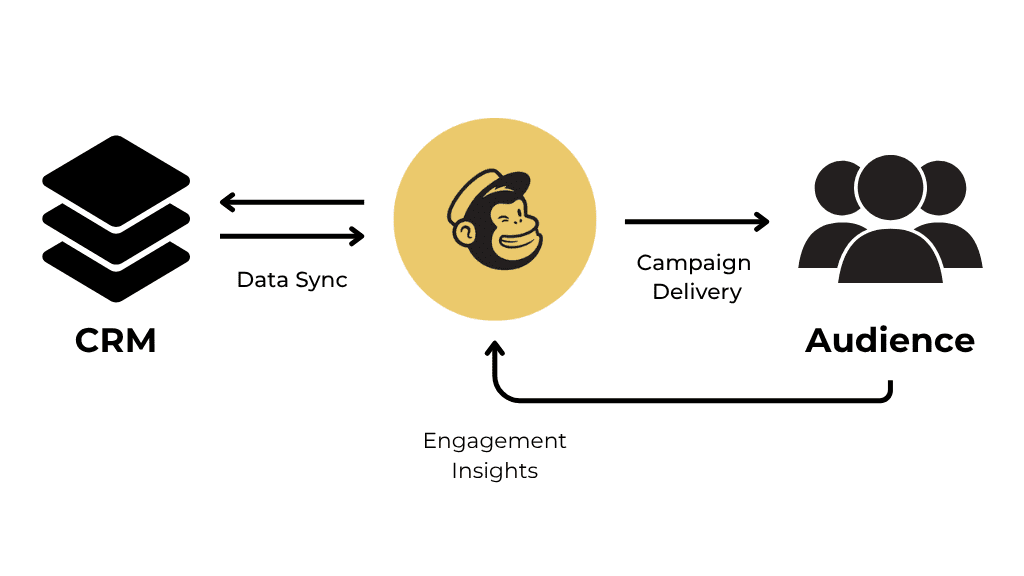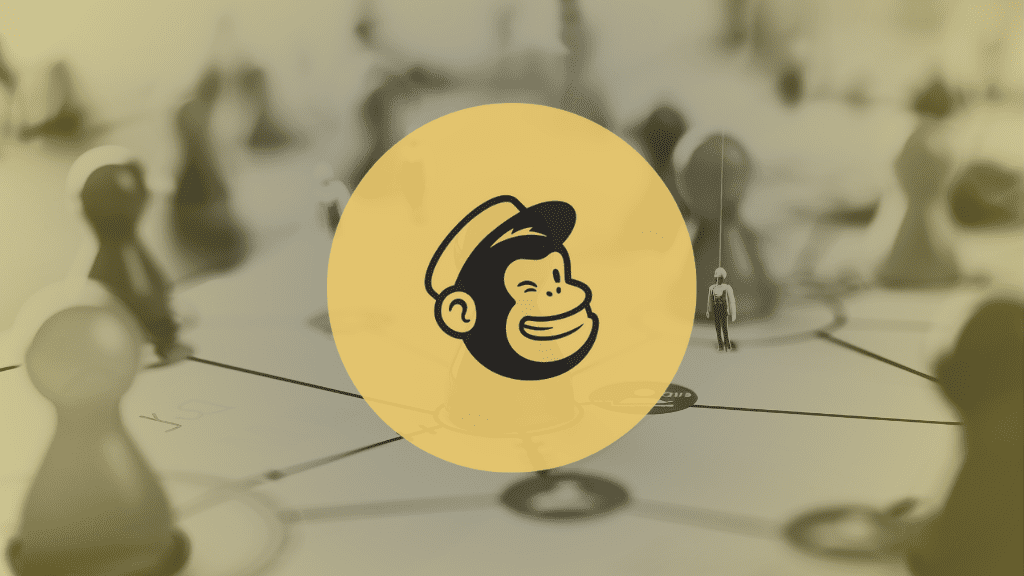Mailchimp has become a popular tool for B2B teams starting to build their marketing presence. It’s approachable, intuitive, and makes it easy to design and send professional emails. But as your marketing matures, one big question tends to surface: is Mailchimp a CRM?
The short answer is no. But it can support one. Understanding where Mailchimp fits, and where its limitations lie, helps prevent wasted time and frustration as your business scales. This guide explores where Mailchimp fits with your marketing toolkit, and when your business should consider adopting a dedicated CRM platform.
Contents
- Is Mailchimp a CRM or Just an Email Tool?
- Mailchimp’s Real Role: Email Delivery
- What a True CRM Does
- Top CRM Platforms to Consider
- How Mailchimp and a CRM Work Together
- The Bottom Line: Is Mailchimp a CRM You Can Rely On?
Is Mailchimp a CRM or Just an Email Tool?
When B2B teams start exploring digital marketing tools, Mailchimp often appears near the top of the list. It’s easy to use, visually clear, and great for sending newsletters.
It can look CRM-like at first glance because it stores contact details and tracks engagement, but its purpose is narrower: it’s designed for communication, not customer relationship management. Moreover, the main difference between Mailchimp and a CRM lies in what happens after you hit send.
Mailchimp’s Real Role: Email Delivery
Mailchimp’s strength lies in what it was designed for: email delivery and performance tracking. It allows you to manage contact lists, create campaigns, and segment audiences based on basic data such as names, emails, or interests. For small or early-stage databases, that might be all you need.
If your main goal is to send periodic updates and measure open or click rates, Mailchimp can act as a light CRM for a while. But it was never built to manage full customer relationships. Consequently, it can’t track deals, monitor your sales pipeline, or follow multi-touch customer journeys – all of which are vital for B2B businesses looking to grow sustainably. In short, Mailchimp sends your message. A CRM helps you grow the relationship behind it.
What a True CRM Does
A Customer Relationship Management (CRM) system unifies your marketing, sales, and customer data in one place. Unlike an email tool, it provides:
- Comprehensive customer profiles beyond basic contact details
- Pipeline and lead tracking across multiple stages
- Automated follow-ups and activity reminders
- Integration with websites, social media, and email tools
- Actionable insights for sales and marketing decisions
This level of structure transforms how you engage with customers, and should be backed by a clear marketing and CRM strategy that ensures each tool works together. As a result, you move from reactive communication (sending updates and hoping for the best) to proactive relationship management. This means clearer visibility, smoother lead nurturing, and ultimately, higher conversion rates.
Top CRM Platforms to Consider
If your business is ready to move beyond Mailchimp’s limits, consider platforms built for scalability and integration:
- HubSpot CRM: Ideal for SMEs, with intuitive workflows and free entry-level options.
- Pipedrive: Great for visual pipeline management and straightforward sales tracking.
- Zoho CRM: Affordable, flexible, and great for smaller teams.
- Salesforce: The enterprise leader for complex, multi-layered B2B environments.
Each integrates with Mailchimp, meaning you don’t have to abandon your existing email setup. Mailchimp can still handle campaign delivery, while your CRM provides the data depth and tracking.
That said, many CRMs now include their own email marketing functionality. As your setup matures, it may be more efficient to consolidate everything into one platform. This can simplify your tech stack, reduce costs, and streamline how you manage customer communication and lead nurturing. For growing B2B teams, fewer moving parts often leads to smoother workflows.
How Mailchimp and a CRM Work Together
Rather than treating Mailchimp as a standalone CRM, think of it as part of a connected marketing ecosystem. In a well-structured marketing setup, Mailchimp works alongside your CRM to deliver segmented, on-brand messages powered by accurate data. Your CRM segments and analyses your audience. Mailchimp then delivers targeted, on-brand messages based on that data. Together, they create a seamless feedback loop that connects marketing activity with measurable outcomes.
To see how this connection works in practice, here’s a simple visual breakdown of the data flow between your CRM, Mailchimp, and your audience.

The Bottom Line: Is Mailchimp a CRM You Can Rely On?
If you’re serious about tracking leads, managing relationships, and building sustainable growth, Mailchimp alone won’t take you far enough.
Mailchimp delivers your message. A CRM builds the relationships behind it. In B2B, relationships drive revenue.
To make both tools work together, you’ll need a cohesive strategy that bridges data, communication, and lead nurturing into one streamlined system.

